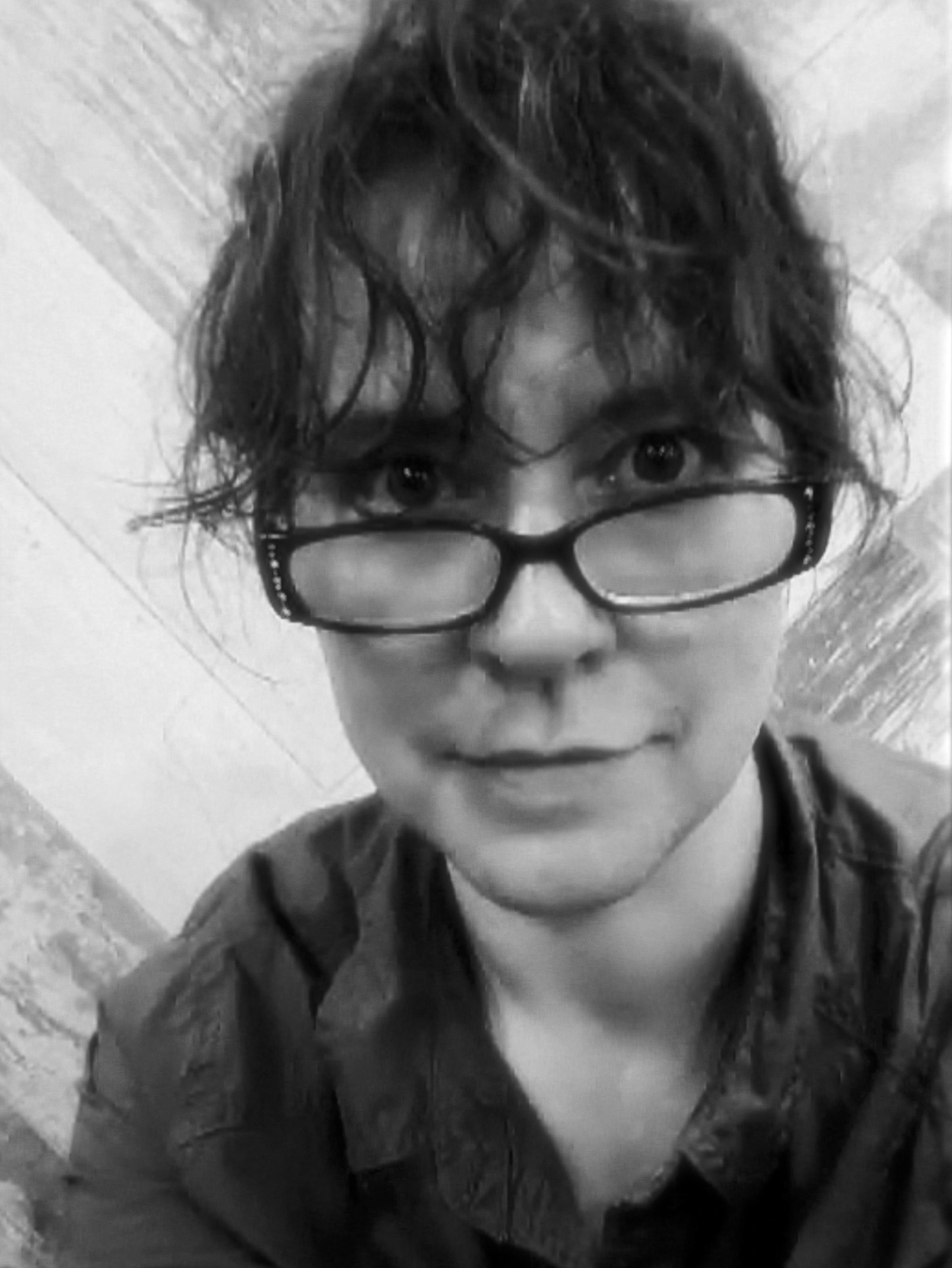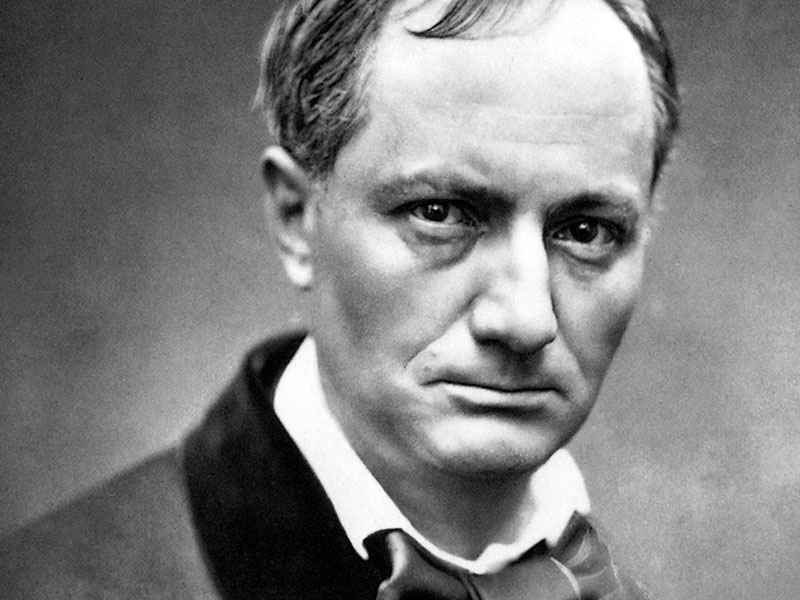Charles Baudelaire was born on April 9th in 1821 in Paris, France and died there forty-six years later on the 31st of August in 1867. He is considered one of the most influential French poets in history and one of the greatest poets of the 19th century influencing an era of poetic symbolism. He was also a translator, essayist, and critic lauded for his celebration and acute articulation of a notion of modernity. Charles Baudelaire became the archetypal modern artist/poet living (and creating) the “bohemian” life that developed among the artists of the mid to late 19th century. He is most known for his scandalous work of poetry, Les Fleurs du Mal (Flowers of Evil), (1857), his translations and commentaries of the work of Edgar Allan Poe and his depiction of the modern artist in Le Peintre de la Vie Moderne (The Painter of Modern Life), (1863).
BIO
Jennifer Reeser is a poet, critic, and translator of French and Russian literature. Her critically-acclaimed translations of Charles Baudelaire are marked by their strong loyalty to the poet’s personal modes of expression, while preserving his strict, original, technical forms, and reproducing his precise music through the English language. They have appeared in such publications as William F. Buckley, Jr.’s magazine, The National Review, and in the literary journal, Able Muse, among others.
(All poems written in the original French by Charles Baudelaire and translated into English by Jennifer Reeser)
La Mort des Amants
Nous aurons des lits pleins d’odeurs légères,
Des divans profonds comme des tombeaux,
Et d’étranges fleurs sur des étagères,
Ecloses pour nous sous des cieux plus beaux.
.
Usant à l’envi leurs chaleurs dernières,
Nos deux coeurs seront deux vastes flambeaux,
Qui réfléchiront leurs doubles lumières
Dans nos deux esprits, ces miroirs jumeaux.
.
Un soir fait de rose et de bleu mystique,
Nous échangerons un éclair unique,
Comme un long sanglot, tout chargé d’adieux;
.
Et plus tard un Ange, entr’ouvrant les portes,
Viendra ranimer, fidèle et joyeux,
Les miroirs ternis et les flammes mortes.
The Death of Lovers
We’ll have beds full of faint scents for ourselves,
Divans unfathomable as the tombs,
And, broken open for us on the shelves
Beneath the finest sky, exotic blooms.
Their heat intensified increasingly,
Reflecting both our spirits within,
Two massive torches our two hearts will be,
Their double brightness each a mirrored twin.
One evening made of rose and mystic blue,
As though we sobbed a lengthy, charged adieu,
We will exchange one single flash of light;
Half-opening the portals later on,
An angel will revive, with true delight,
The tarnished glass and flames which once were gone.
Le Cygne
À Victor Hugo
I
Andromaque, je pense à vous! Ce petit fleuve,
Pauvre et triste miroir où jadis resplendit
L’immense majesté de vos douleurs de veuve,
Ce Simoïs menteur qui par vos pleurs grandit,
.
A fécondé soudain ma mémoire fertile,
Comme je traversais le nouveau Carrousel.
Le vieux Paris n’est plus (la forme d’une ville
Change plus vite, hélas! que le coeur d’un mortel);
.
Je ne vois qu’en esprit tout ce camp de baraques,
Ces tas de chapiteaux ébauchés et de fûts,
Les herbes, les gros blocs verdis par l’eau des flaques,
Et, brillant aux carreaux, le bric-à-brac confus.
.
Là s’étalait jadis une ménagerie;
Là je vis, un matin, à l’heure où sous les cieux
Froids et clairs le Travail s’éveille, où la voirie
Pousse un sombre ouragan dans l’air silencieux,
.
Un cygne qui s’était évadé de sa cage,
Et, de ses pieds palmés frottant le pavé sec,
Sur le sol raboteux traînait son blanc plumage.
Près d’un ruisseau sans eau la bête ouvrant le bec
.
Baignait nerveusement ses ailes dans la poudre,
Et disait, le coeur plein de son beau lac natal:
«Eau, quand donc pleuvras-tu? quand tonneras-tu, foudre?»
Je vois ce malheureux, mythe étrange et fatal,
.
Vers le ciel quelquefois, comme l’homme d’Ovide,
Vers le ciel ironique et cruellement bleu,
Sur son cou convulsif tendant sa tête avide
Comme s’il adressait des reproches à Dieu!
II
Paris change! mais rien dans ma mélancolie
N’a bougé! palais neufs, échafaudages, blocs,
Vieux faubourgs, tout pour moi devient allégorie
Et mes chers souvenirs sont plus lourds que des rocs.
.
Aussi devant ce Louvre une image m’opprime:
Je pense à mon grand cygne, avec ses gestes fous,
Comme les exilés, ridicule et sublime
Et rongé d’un désir sans trêve! et puis à vous,
.
Andromaque, des bras d’un grand époux tombée,
Vil bétail, sous la main du superbe Pyrrhus,
Auprès d’un tombeau vide en extase courbée
Veuve d’Hector, hélas! et femme d’Hélénus!
.
Je pense à la négresse, amaigrie et phtisique
Piétinant dans la boue, et cherchant, l’oeil hagard,
Les cocotiers absents de la superbe Afrique
Derrière la muraille immense du brouillard;
.
À quiconque a perdu ce qui ne se retrouve
Jamais, jamais! à ceux qui s’abreuvent de pleurs
Et tètent la Douleur comme une bonne louve!
Aux maigres orphelins séchant comme des fleurs!
.
Ainsi dans la forêt où mon esprit s’exile
Un vieux Souvenir sonne à plein souffle du cor!
Je pense aux matelots oubliés dans une île,
Aux captifs, aux vaincus!… à bien d’autres encor!
The Swan
To Victor Hugo
I.
Andromache, I think of you! that saddened river,
Petite and poor reflection where so long ago,
The majesty of your vast widows’ grief would glimmer,
That fraud Simois which, by your great tears, would grow,
At once, my fecund memory to fertilize,
As through the new Place du Carrousel I start.
The vintage Paris is no more (a city’s guise
Alas! more quickly changes than the mortal heart).
I do not see except in spirit all this camp,
These heaps of circus big tops, beaten tent and shack,
The grass, large blocks turned green by puddle water’s damp,
And, sparkling on the tiling, muddled bric-a-brac.
In former times was set there a menagerie;
One morning under cold, clear skies, I noticed there
At the hour when Labor wakens from its dormancy
To push a gloomy hurricane through silent air,
A swan, which had been liberated from its coop,
And, with its webbed feet, padded toward an empty creek,
Across planed ground, allowing its white plumes to droop.
Upon dry cobblestone, the beast, with opened beak
Nervously within the powder bathed white wing,
And, heart filled with its lovely, native lake, it said,
“Then, Water, when will you rain down, with thunder, lightning?”
I saw this poor unfortunate, myth strange and dread,
Around the sky at random, like a man from Ovid,
Around the sky, ironical and pitiless,
Its head convulsive on its gullet, taut and avid,
As though it were reproaching God with its address!
II.
Paris is changed! Though nothing in my melancholy
Has altered. Scaffolding, new palaces, the blocks,
Old suburbs, all for me become an allegory
And my dear memories more burdensome than rocks.
Before the Louvre, an image overpowers me.
I think of my grand, foolish swan, an exile, too,
Sublime, consumed by one desire incessantly,
Its gestures idiotic! then I think of you,
Fallen from a grand mate’s arms, Andromache,
Vile livestock, underneath the hand of splendid Pyrrhus,
Beside a vacant tomb in bowing ecstasy
Alas, as Hector’s widow! wedded to Helenus!
I think of the consumptive negress, angular,
Who trudges through the mud, to search with haggard gaze
The absent coconuts of splendid Africa
Behind the barricades of the tremendous haze,
Of everyone who loses what they may regain
Not ever, ever! of those who, with a swallowed cry,
Like any worthy she-wolf, suckle teats of Pain!
Of waifs akin to flowers, skeletal and dry!
Thus in the forest, where my spirit lives in exile,
An old remembrance trumpets with abundant breath!
I think of mariners forgotten on an isle,
Of captives, those who lose!….of many others yet!
Brumes et pluies
Ô fins d’automne, hivers, printemps trempés de boue,
Endormeuses saisons! je vous aime et vous loue
D’envelopper ainsi mon coeur et mon cerveau
D’un linceul vaporeux et d’un vague tombeau.
Dans cette grande plaine où l’autan froid se joue,
Où par les longues nuits la girouette s’enroue,
Mon âme mieux qu’au temps du tiède renouveau
Ouvrira largement ses ailes de corbeau.
Rien n’est plus doux au coeur plein de choses funèbres,
Et sur qui dès longtemps descendent les frimas,
Ô blafardes saisons, reines de nos climats,
Que l’aspect permanent de vos pâles ténèbres,
— Si ce n’est, par un soir sans lune, deux à deux,
D’endormir la douleur sur un lit hasardeux.
Mist and Rain
O ends of autumn, winters, springs of mud-soaked days,
Seasons of enticement! You I love and praise,
Enveloping my spirit and perception thus
Within a vague tomb, shrouded in the vaporous.
Where bleak winds from the south play on this august plain,
Through lengthy nights against the grating weathervane,
My spirit, better than the time when summer brings
Renewing warmth, will open wide its raven wings.
The funereal spirit finds no other thing more sweet
Where frost has been descending for the longest time,
O weak, anemic seasons, regents of our clime,
That pale appearance of your shadows made complete,
–If not this, on a moonless evening, head to head,
Rocking to sleep the sadness on an unsafe bed.
*****


